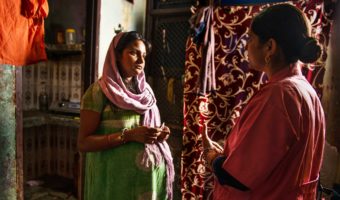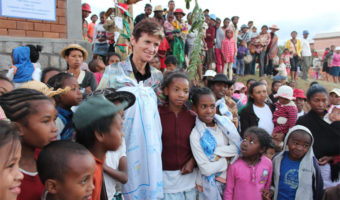Poverty has a wide-ranging detrimental effect on child development and more broadly on human capital accumulation. The World Bank Group recently launched the Human Capital Project, recognising that investments in a child’s earliest years are among the smartest a country can make to address extreme poverty, reduce inequality, boost shared prosperity and develop the human capital needed to grow and diversify its economy. The report Promoting Early Childhood Development through Combining Cash Transfers and Parenting Programs (Arriagada et al., 2018) examines the potential for bringing together cash transfer and parenting programmes targeted to the poorest and most vulnerable to improve children’s human capital.
Cash transfer programmes are typically designed for poor families where child development deficits such as chronic malnutrition are concentrated. They also benefit from a rich legacy of focusing on behavioural practices, particularly concerning parents’ investments in children. Pro-poor cash transfer programmes can help to mitigate the detrimental and long-lasting effects of poverty on child development, support human capital accumulation and reduce inequality from early in life. There is established evidence of their contributions in protecting and boosting children’s health, nutrition, education and access to core services (Fernald et al., 2012; Bastagli et al., 2016; de Walque et al., 2017).
Beyond income support, cash transfer programmes often include ‘accompanying measures’ in the form of goods and services often aimed at instilling certain behaviours and investments among parents in order to improve children’s human capital outcomes. Conditional cash transfers require or encourage parents to take their babies to health clinics for pre- and postnatal care, attend growth promotion sessions, and regularly send children to school. Increasingly, cash transfer programmes are directly providing complementary goods and services linked to early child development, as well as encouraging parents and caregivers to participate in parenting programmes and improve their own knowledge and practice.
Cash transfer and parenting programmes
Parents and caregivers are crucial to the healthy development of infants: investing in their children’s nutrition and health, and ensuring a safe and supportive home and access to key services. Parents actively shape children’s skills and socio-emotional development by playing with them, talking, reading or telling stories to them and interactively responding to their cues.
In combination, cash transfers and accompanying measures designed to improve parenting practices can be a powerful tool to improve child development during the early years. Evidence from parenting interventions in developed and developing countries has shown in many cases positive impacts on parenting practices, home environments and child development outcomes. However, most of the evidence is from small-scale interventions delivered through home visits.
We find promising evidence for combining cash transfer and parenting programmes based on four scalable combined programmes in Colombia, Mexico, Niger and Peru. Adding the parenting programme to the cash transfer programme improved some parental practices and child development outcomes, with significant results in children’s cognition, language and socio-emotional development. However, evidence is still scarce and often based on small trials, calling for more research to understand the key elements of optimal combinations, fidelity of implementation, cost-effectiveness of different design features, replicability and sustainability of results.
References can be found in the PDF version of the article.



